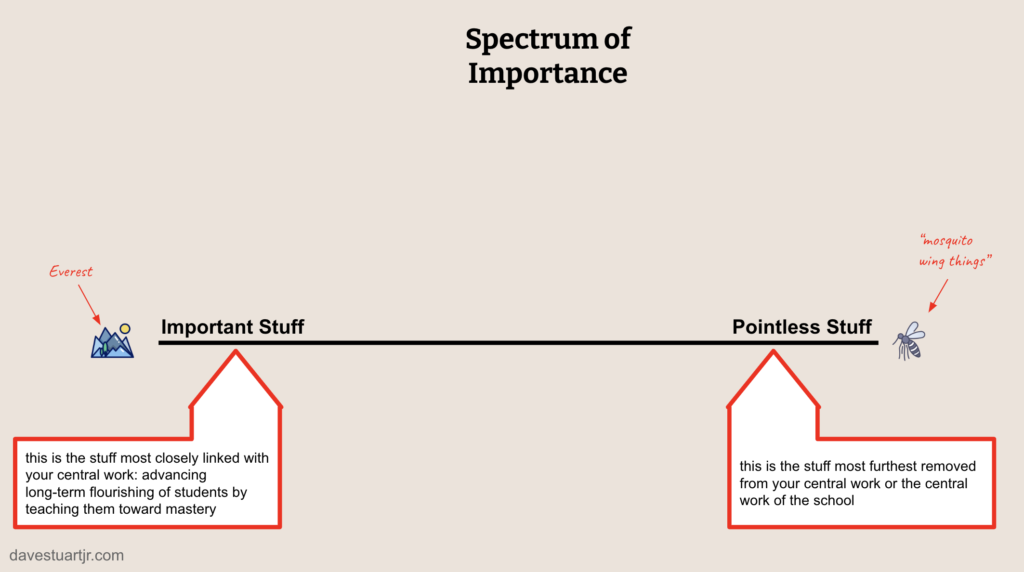The other day I fiddled up the end of a talk on the Will to Teach by making it seem like satisficing is something that you do for every single task on your plate as a teacher. Astute listeners unfamiliar with my work were left thinking, “Huh — it sounds like he's telling me to mail it in. This is that ‘quiet quitting' I've been reading about.”
Thankfully, I've got a shot here on the blog to clear things up. And for all of us, this idea of satisficing is so important that it's worth bringing up for all of us.
To satisfice a task is to:
- Satisfy the basic requirements of the task, but to
- Sacrifice any additional quality that could have been given to the task with more time or energy.
My old man had a simpler way of saying this: half-assing.
But here's the thing that I understated with the group I was speaking to the other day: you satisfice many things so that you can maximize the living daylights out of a few really important things.
When introducing this concept, I like asking folks to picture all of the tasks they do as if they existed on a spectrum, from least to most important. (That is, least to most integral to the fulfillment of the core duty or Everest of your job.)

What I fiddled up in my talk the other day, I think, is that I gave the impression that your goal is to put everything that you do on the far right of the spectrum.
And, to be clear: no, that's not what you do.
What you do is decide that some things merit more effort and energy and intensity than others.
- 95% of the emails in my inbox merit a glance and then an archive. They need not be belabored. I need not formulate a pithy response to the group email thread.
- My state's hyper-detailed teacher evaluation rubric is too much for my simple mind. I need not master it to master teaching. I need not get all the points to help each of my students get the point of school and grow toward it.
- I need not hyperventilate when there's an interruption to my lesson plan. An overhead announcement, a kerfuffle in the hallway, an emergency drill I didn't catch in the weekly memo: these need not blow my mind off the course of today's lesson's central purpose.
My point with satisficing — and Nobel-winner Herbert Simon's point, when he first coined the term in the 50s — is that not all things are equally important. Knowing which things are is more than half the battle in building a teaching career that matters.
Heck, this isn't just my point with satisficing — it's the point with basically my whole blog, my whole These 6 Things book, my whole service to this profession.
So, mad love to the folks honest enough to give me feedback when my talks leave questions hanging in there.
And mad love to you, dear colleague, for reading my response and hanging in there in the work that matters most.
Best,
DSJR
Leave a Reply